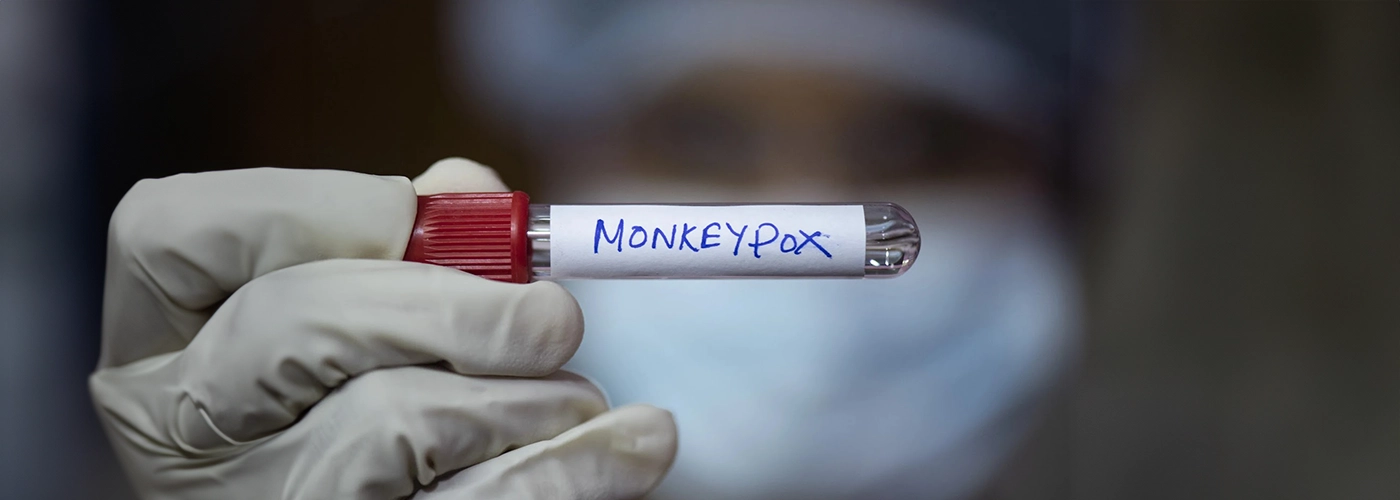Topics
Monkeypox (Mpox) is a viral disease caused by the Monkeypox virus, part of the smallpox family but not related to chickenpox. It is a zoonotic disease, transmittable between animals and humans, and is primarily found in Central and West Africa among small rodents and monkeys.
Is Monkeypox a New Virus?
The monkeypox virus is not a new virus that causes a severe disease. Monkeypox is a rare viral zoonotic disease caused by the Orthopoxvirus genus of the Poxviridae family. This virus will be checked for via a polymerase chain reaction (PCR) test.
What are the Symptoms of Monkeypox?
It is important to distinguish mpox from chickenpox, measles, bacterial skin infections, scabies, herpes, syphilis based on its symptoms. In humans, the symptoms of monkeypox are similar to but milder than smallpox. The monkeypox symptoms typically are:
- Fever
- Fatigue / Tiredness
- Headache
- Muscle aches
- Back pain
- Joint pain
- Swollen lymph nodes
Within 1 to 5 days after the presentation of initial flu-like symptoms, a rash typically develops. The rash usually begins on the face before spreading to other areas of the body such as the mouth, genitalia, and anus. The rash may be painful or itchy.
The incubation period (time from exposure to the initial presentation of symptoms) for monkeypox is usually 6 to 13 days but can range from 5 to 21 days. In most cases, the Mpox symptoms subside within 2 to 4 weeks.
How is Monkeypox Transmitted?
According to World Health Organization, the transmission of Monkeypox virus is through:
- Direct contact with an infected animal and person’s rash, scabs, or body fluids. Direct contact with a person infected with Mpox virus includes prolonged face-to-face contact, hugging, kissing, holding hands and sexual contact.
- Objects, fabrics, and surfaces that are contaminated with the virus.
How is Mpox Treated?
Currently, there are no specific clinically proven monkeypox treatments; treatment focuses on supportive symptom management, typically in a few weeks, much like other viral illnesses. However, there are preventive measures to help avert an outbreak.
Infected individuals should stay isolated, wear a surgical mask, and keep lesions covered as much as possible until all crusts fall off naturally and new skin forms.
How to Prevent Monkeypox?
For those travelling to countries with active cases, several preventive measures can be taken to prevent infection with the monkeypox virus:
- Practice good hand hygiene at all times. Wash your hands with soap and water frequently or use an alcohol-based hand sanitiser.
- Avoid direct or close contact with body fluids and contaminated materials such as bedding and clothing used by infected individuals.
- Discuss your sexual health and any symptoms you may be experiencing with your sexual partner.
- Avoid contact with broken skins of wild and/or sick animals that could harbour the virus.
For those who have recently travelled to countries with reported monkeypox cases, if you develop symptoms listed above, you should:
- Seek medical attention immediately.
- Inform your doctor about your recent travel history.
- Stay isolated from other individuals.
- Self-quarantine for at least 21 days until symptoms subside.
Make an Appointment at Pantai Hospital
If you are experiencing an active rash, skin lesions or other symptoms mentioned above, please seek immediate medical attention at the Accident and Emergency (A&E) department at your nearest Pantai Hospital to consult with their healthcare provider.












